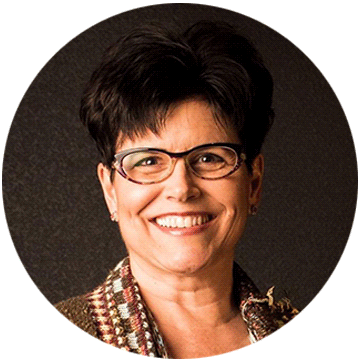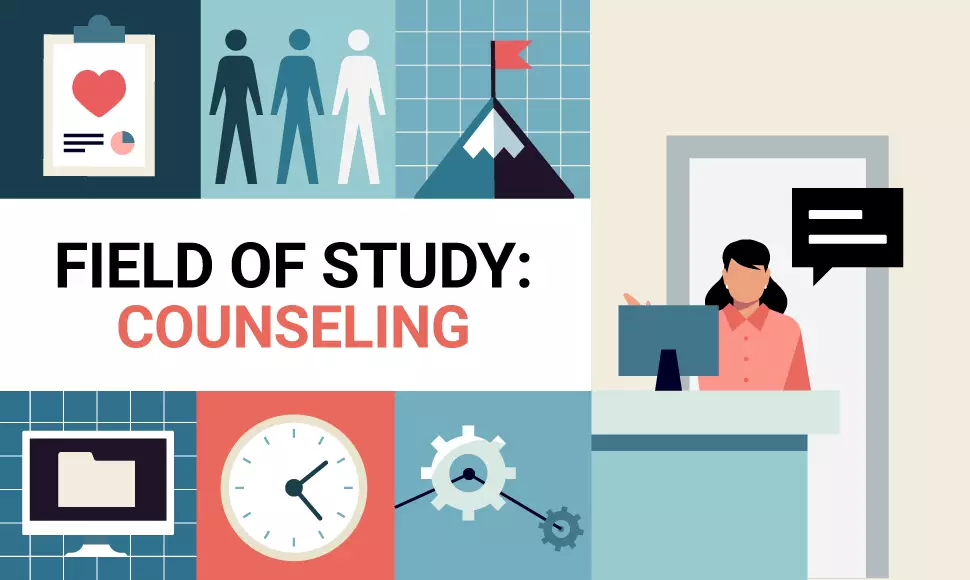Articles > Counseling > What can you do with a master's in counseling?
What can you do with a master's in counseling?

Written by Laurie Davies

Reviewed by Christina Neider, EdD, Dean of the College of Social and Behavioral Sciences

Human behavior is complex, and so too is mental health counseling. But, as any successful counselor will tell you, there’s almost no more gratifying job than helping someone overcome the obstacles that stand in the way of a fulfilling, productive life. A dedicated mental health counselor could be the difference-maker who helps clients elevate their well-being and make recovery a reality.
What does a master's in counseling prepare you to do?
According to the American Counseling Association , counseling is a collaborative effort between a counselor and client(s) that aims to:
- identify goals and potential solutions to problems that cause emotional turmoil
- improve communication and coping skills
- strengthen self-esteem
- promote behavior change and optimal mental health
If you would like to help others as a counselor, you’ll need a mix of soft skills based in interviewing and assessment, along with theoretical knowledge based in human psychology. According to Indeed.com , skills that those practicing mental health counseling should have include:
- Active listening (eye contact, facial expressions, gestures, etc.)
- Questioning (skill in questioning techniques)
- Note-taking (recording important points for further analysis)
- Interpretation (placing vague information into context)
- Nonverbal communication (identifying attitudes and feelings based on body language)
- Self-awareness (awareness of how body language, gestures and tone affect clients)
- Trustworthiness (building and maintaining trust)
- Empathy (seeing a client’s situation for their perspective)
- Emotional compartmentalization (maintaining professional boundaries)
- Information recall (remembering information from previous sessions)
- Confidentiality (respecting the privacy of information clients share)
- Record-keeping (maintaining detailed records and session notes)
A mental health counselor should also master skills taught in a masters in counseling program such as counseling ethics, social and cultural diversity, human growth and development and the differences between one-on-one and group dynamics. The variety of skills is understandable, given the number of career paths that are possible with a mental health master's in counseling degree.
Job outlook for mental health counselors
Job growth for mental health counselors is projected to be 18% between 2022 and 2032, according to BLS . This is much more robust growth than the projected national average growth rate of 8% for all professions. They may find work in both the public sector, such as agencies, hospitals and rehabilitation centers, as well as in private practice.
BLS Occupational Employment Projections, 2022-2032 is published by the U.S. Bureau of Labor Statistics. This data reflects BLS’ projections of national (not local) conditions. These data points are not specific to University of Phoenix students or graduates.
This adds up to increased demand for skillful mental health counselors who have achieved a counseling degree.

What careers can you pursue with a master's in counseling?
With the jobs outlook pointing in such a positive direction, you might be wondering about the kinds of careers you could pursue once you earn a master’s in counseling.
According to U.S. Department of Labor figures cited by the American Counseling Association , more than 665,500 counselors work with patients ranging in age from children to seniors in agencies, organizations, private practice, personal and healthcare delivery systems and other settings.
According to O*Net, the national primary source of occupation information developed under the sponsorship of the Department of Labor, reported job titles for mental health counselors include:
- Behavior Analyst
- School Counselor
- Mental Health Counselor
- Correctional Counselor
- Case Manager
What would it look like to be a master’s level counselor, specifically? Let's look at average salary, education requirements and job outlook.
Mental Health Counselor
Overview: Mental health counselors treat clients with a variety of conditions, including anxiety, depression, grief, low self-esteem, stress and suicidal impulses. They also help with emotional health issues and relationship problems.
National Median Salary: $53,710 in May 2023 for substance abuse, behavioral disorder and mental health counselors, according to BLS .
Education Requirements: A master’s in counseling and an internship is typically required, according to BLS .
Job Outlook: 18% between 2022 and 2032, according to BLS .
Salary ranges are not specific to students or graduates of University of Phoenix. Actual outcomes vary based on multiple factors, including prior work experience, geographic location and other factors specific to the individual. University of Phoenix does not guarantee employment, salary level or career advancement. BLS data is geographically based. Information for a specific state/city can be researched on the BLS website.
BLS Occupational Employment Projections, 2022-2032 is published by the U.S. Bureau of Labor Statistics. This data reflects BLS’ projections of national (not local) conditions. These data points are not specific to University of Phoenix students or graduates.
What to look for in a master's in counseling program
To pursue a career as a mental health counselor, you’ll need to earn master’s in counseling and meet the requirements for licensure in the state where you want to practice.
At University of Phoenix, a Master of Science in Counseling/Clinical Mental Health Counseling (MSC/CCMH) is a 60-credit, online, clinical mental health counseling program that includes all of those requirements. (Licensing requirements vary by state, so be sure to review the state licensure requirements in the state where you wish to practice.)
Licensing requirements vary by state, so be sure to review the state licensure requirements in the state where you wish to practice.
Get more information about starting your master's in clinical mental health counseling online at University of Phoenix.

The pandemic definitely heightened the need for access to mental health care. Meanwhile, the stigma around mental health care is [declining]. You see athletes talking about it openly. A whole-person concept is becoming more of a topic with healthcare clinicians.
Christina Neider, EdD
Dean of the College of Social and Behavioral Sciences at University of Phoenix
Read more articles like this:

ABOUT THE REVIEWER
Christina Neider is the dean of the University of Phoenix College of Social and Behavioral Sciences. Neider’s career spans more than 30 years in academia, healthcare and the U.S. Air Force. She has held several academic leadership roles at University of Phoenix, and she is the Vice President of membership for the Arizona Chapter of the Healthcare Information and Management Systems Society.
This article has been vetted by University of Phoenix's editorial advisory committee.
Read more about our editorial process.


